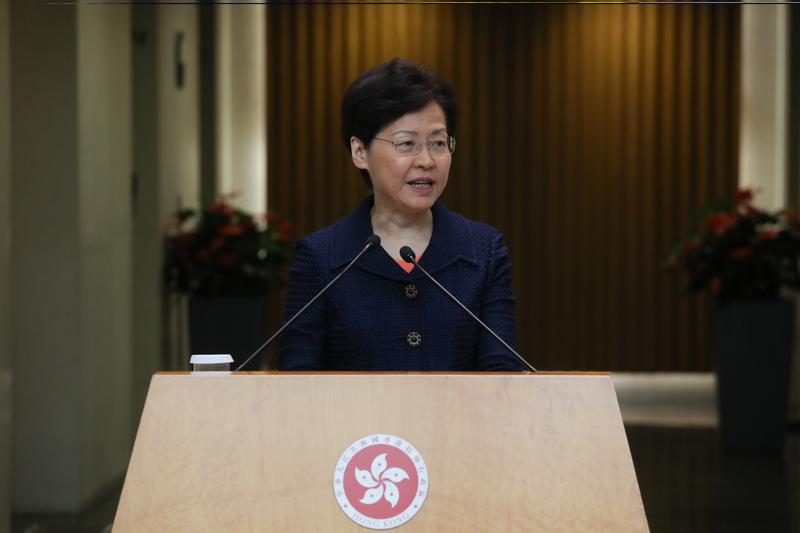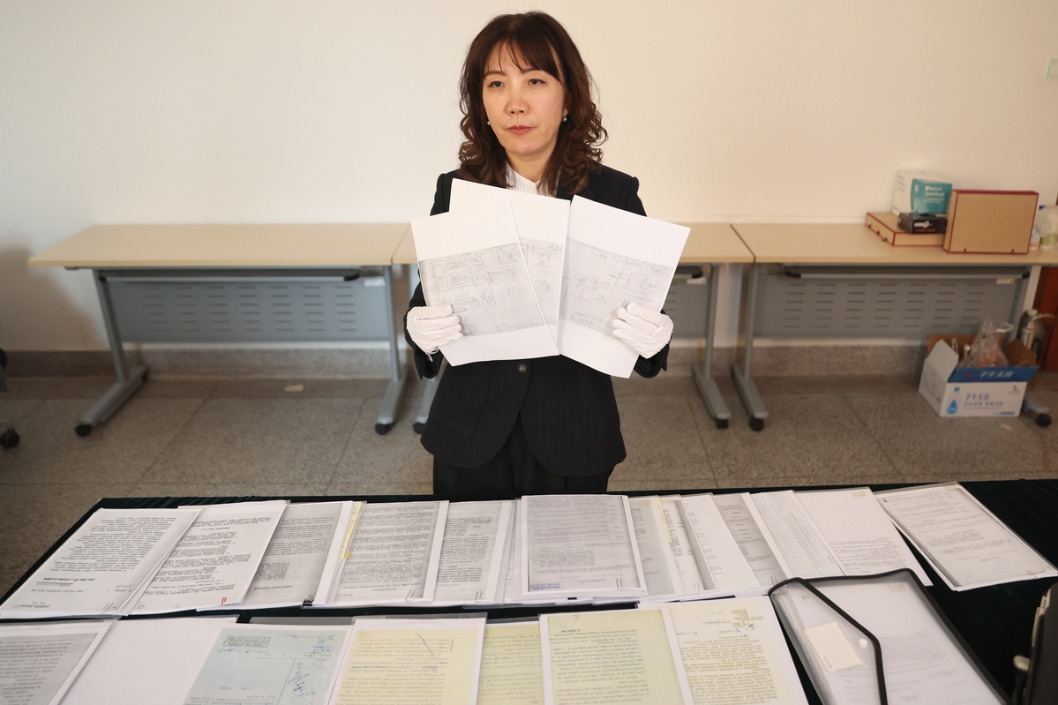City's economy is facing three structural challenges


Chief Executive Carrie Lam Cheng Yuet-ngor warned that the Hong Kong Special Administrative Region must wade through an economic malaise that will likely be more acute than the previous two downturns caused by the financial crisis in 1997 and SARS outbreak in 2003.
The approaching economic malaise suggests that the economy, as well as society, are facing three fundamental structural challenges.
The first challenge originates from the United States initiating a new global strategy that unprecedentedly lists China as one of its main rivals.
It has been a consensus of the global community to treat Sino-US relations as the most important bilateral relationship in the first half of the 21st century.
The far-reaching influence of the rivalry between the two economies is the linchpin in the paradigm shift of the century and could determine the 21st-century global power layout.
The bruising trade war that US President Donald Trump launched has spilled over into science and technology as well as finance, and it will no doubt trigger shakedowns of industrial chains and value chains on a global scale.
As a result, the trade war has increasingly affected Hong Kong as a trading port and will continue to do so in the years to come.
The list of markets that Hong Kong does transshipment trade with will change, as will their standing by trade value and Hong Kong's total trade volume.
Those two factors will affect other industries closely related to transshipment trade to the extent that it may be a matter of life and death for some enterprises.
The second structural challenge is the result of the repositioning of Hong Kong's external relations.
More importantly, it is the natural outcome of the country's relations with the US and some other Western countries that has necessitated Hong Kong's repositioning of itself in response to the changing big picture and will continue to do so.
Before the US adjusted its global strategy with China as one of its main rivals, Hong Kong was a "bridge" between China and the US-led Western powers as well as a center of friction. As the US stepped up efforts to contain China from all directions and its Western allies more or less went along for the ride, Hong Kong has quickly become a "battlefield" in a sense.
The US and some of its Western allies are the "dirty hands" conducting the ongoing "black revolution" in Hong Kong.
The "black revolution" is no doubt doomed to fail, but Hong Kong must take a side, which is the sovereign state no matter what, meaning it simply cannot sit on the fence between the motherland and the US-led Western powers.
This change is happening and will conclude in the foreseeable future. As such, it will noticeably impact Western economies' investment in Hong Kong, including the amount of capital they have already invested in the SAR.
Hong Kong society has long been influenced by Western culture and politics, with the US and the UK being the most important investors in the city.
That is why the repositioning of Hong Kong amid the changing relations between the motherland and the US-led Western powers are already faced with growing resistance.
It is bound to happen whether one likes it or not. Whether the repositioning process will be smooth or otherwise will be reflected by Hong Kong's GDP growth and employment situation.
The third structural challenge arises from the advancement of the "one country, two systems" policy with the times. Hong Kong's biggest carrier, Cathay Pacific Airways, was the first to feel the pressure to strike a balance between "one country" and "two systems".
A recent notice from the Civil Aviation Administration of China warned Cathay against allowing its employees to engage in "illegal protests", "violent acts" and "overly radical activities", in response to recent instances in which Cathay Pacific employees, including pilots in active service, posed undeniable security and safety risks to passengers.
The warning demanded that beginning on Aug 10, Cathay Pacific immediately bar anyone engaged in or supporting illegal protests and violent acts from working on flights over the mainland regardless of the type of flight; beginning on Aug 11, all Cathay Pacific and affiliated airlines must submit complete passenger and crew manifests of all flights to or over the mainland in advance so that the civil aviation departments concerned can verify and approve them, and flights that fail to pass advance security checks will be rejected; and beginning Aug 15, Cathay Pacific must submit a proper action plan to enhance flight safety and security measures for approval by the relevant civil aviation authorities on the mainland as a qualified commercial air transport operator.
The requirements for Cathay Pacific are unprecedented and have sent an important message: The central government is now emphasizing that implementing the "one country, two systems" policy is a common undertaking for the Hong Kong SAR as well as the mainland.
The original intent of the "one country, two systems" policy was to ensure the exercise of socialism on the mainland and capitalism in Hong Kong, but many people have mistakenly convinced themselves of caring only about practicing capitalism in Hong Kong in the past 22 years.
This partial view has given rise to "localism" and pursuit of Hong Kong independence. Such ideas are closely related to rallying calls of the ongoing "black revolution" such as "no extradition to China" and "free Hong Kong, revolution now".
That is why Cathay Pacific was made an example of, to never take any erroneous interpretation of the "one country, two systems" principle for granted ever. All business owners in Hong Kong must learn a lesson from Cathay Pacific regarding correctly understanding "one country, two systems" and fix their conduct accordingly.
That is the significance of the Cathay Pacific scandal and backlash and will spill over to Hong Kong-based businesses' investment and flow of capital on the mainland.
As a result, it will also lead to the readjustment of Hong Kong's local capital structure.
The three structural challenges are intertwined and affecting deeper adjustment of Hong Kong's economy and finance as well as its future socio-political situation.
The author is a senior research fellow of China Everbright Holdings.


































